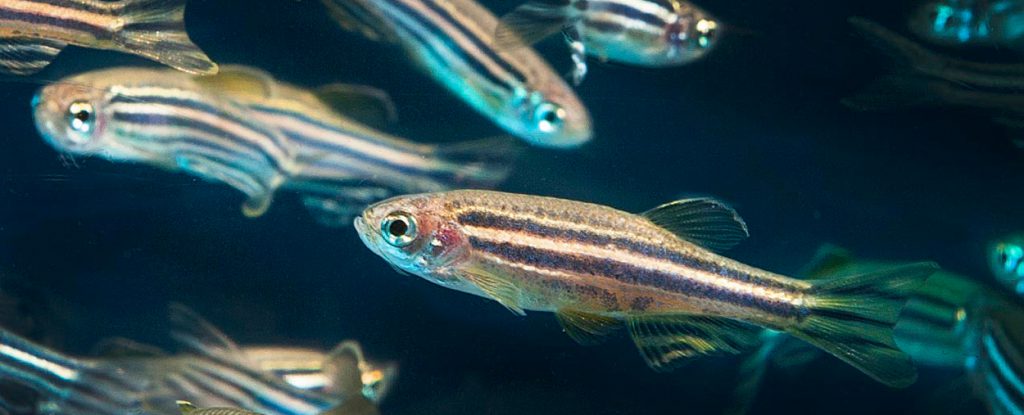By: Jon Farrow
11 Dec, 2018

A new protein discovered in the intestines of zebrafish may help resolve a long-standing mystery of the microbiome: why don’t we react to most of the bacteria within us?
Each one of us contains at least as many bacterial cells as we have human cells. But bacteria aren’t always easy neighbours. They have cell walls with strange proteins, they eject waste and they can proliferate so much they take over. To protect ourselves, we have developed immune systems that seek out and destroy invading cells.
These two facts, that trillions of bacterial cells live in and on us and that our immune systems attack foreign organisms, led researchers like Karen Guillemin, a senior fellow in the Humans & the Microbiome program, to ask why we aren’t having a massive inflammatory response all the time.
One answer might lie in a new protein discovered in the gut of zebrafish in her lab. The protein, dubbed ‘Aeromonas immune modulator’ (AimA), is at the centre of a new study published in eLife. It is secreted by the bacteria Aeromonas, a common resident of aquatic vertebrates, and acts to subdue the immune system. While the protein is new to science, according to Guillemin its shape “is reminiscent of lots of other proteins, including lipocalin, which is known to be an anti-inflammatory in mammals.”
After a battery of tests in the lab, Guillemin says, “It’s clear that this protein has potent immunomodulatory action in the fish. And we were able to show that it can alleviate inflammation in response to a number of different stressors. We discovered that it can alleviate the inflammation caused by Aeromonas itself, but we then showed other types inflammation could be cured by it. Which suggests it’s a more general anti-inflammatory mechanism.”
The protein, in other words, keeps the peace. And this benefits not just the host, who gets to save its energy and reap the rewards of a stable microbiome, but also the bacteria, who get a stable place to live and grow. “The exciting implication of this,” says Guillemin, “is that common residents of the intestine like Aeromonas are motivated to produce the anti-inflammatory compounds because it benefits them.”
And given its success, Guillemin doesn’t think Aeromanas is alone in taking this conciliatory strategy when it comes to living in a gut. Earlier work from 2015 showed that the bacteria in the zebrafish gut are not as pro-inflammatory as they should be, suggesting that many of them could be using proteins like AimA to actively reduce inflammation and live in harmony with their hosts.
Future work in Guillemin’s lab and across CIFAR’s Humans & the Microbiome program aims to investigate the mechanism of proteins like AimA and to find out if this translates from fish to humans. This is part of the wider quest of the program to uncover how microbes interact and co-evolve with their hosts and the environment.